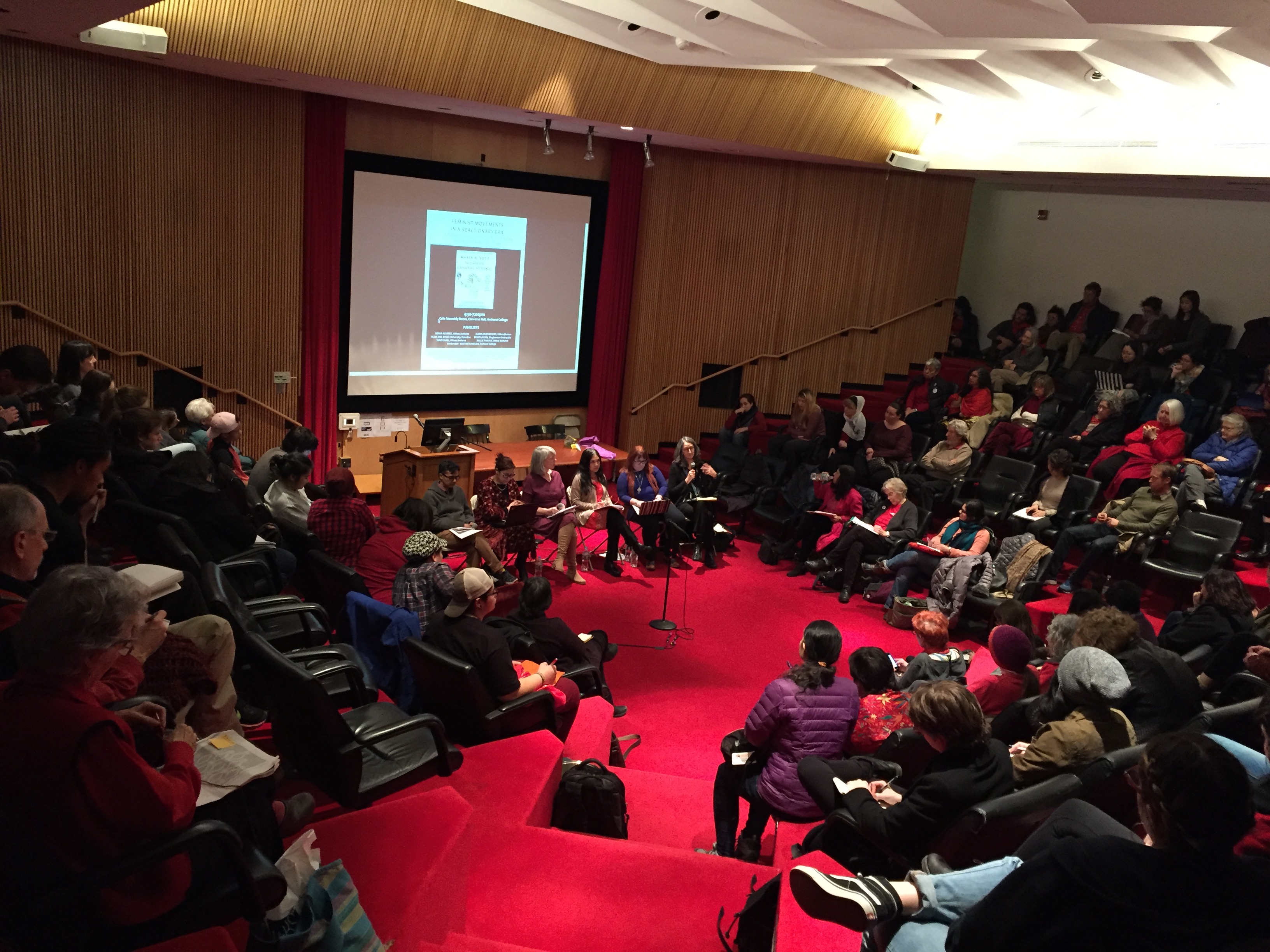

Amherst College professors held a symposium on March 8, International Women’s Day, to discuss global feminist movements. A march through the Amherst town commons followed the panel and discussion session of the symposium, which was titled “Feminist Movements in a Reactionary Era: A Teach-In, Talk-Around and Walk-Out Honoring the International Women’s Strike.”
Professor Amrita Basu, who teaches in the sexuality, women’s and gender studies department as well as other departments, introduced the panelists. She discussed advances made by women in social justice movements and setbacks they have faced with the rise of right-wing political groups.
Basu also questioned whether activism can be successful and sustainable over the long term, or if it is merely in response to oppression.
Five professors from various institutions spoke at the panel: Millie Thayer and Svati Shah from UMass Amherst, Elora Chowdhury from UMass Boston, Islah Jad from the Birzeit University in Palestine and Benita Roth from Binghamton University. Professor Kristin Bumiller, chair of political science at Amherst, moderated the discussion.
The speakers, who are experts in international feminist and LGBT movements, discussed current and historical movements for women’s rights in Bangladesh, India, Palestine, the U.S. and Brazil.
Additionally, they talked about how race, social class and LGBT issues have affected feminist activism.
When asked about international cooperation between feminist movements, Thayer described the domestic focus of Brazil’s activists.
“Most people are really focused … on the right wing in their own country, and they’re sort of fighting for their lives, so it’s been a lot of harder to focus beyond the borders of their country,” said Thayer.
A Q&A session followed the panel, with discussion on topics such as neoliberalism, modern movements like Black Lives Matter and the necessity of grassroots activism.
After the symposium, attendees gathered in the lobby of Converse Hall for the march. People held signs with slogans in different languages to reflect the theme of internationality that was present through the day’s events and discussions.
The march, which lasted for around half an hour, took a rectangular route around the Amherst town common, beginning north on Boltwood Avenue and ending outside of Converse Hall across from College Street. The event held up traffic on the road, and the crowd was trailed by a long line of cars.
At the conclusion of the march, Ana Ascencio ’18 gave a final speech to wrap up the event, noting the presence of both students and members of the community and reminding everyone that they were standing in solidarity with those across the globe who were also marching that day.
Ascencio rallied the crowd with a chant at the end of her speech: “When they say step back, we say fight back!”
In an online interview, she said that the slogan was taken from a similar march held in Northampton earlier in the day, which drew approximately 300 participants, according to WWLP-22News.
“I felt compelled to take what the women on the panel said and the comments raised by the women in the crowd into a space of direct, public action,” she said.
“I think for me, the march was intended to be a disruption of normal operations — in this case disrupting traffic in a very public way — to show what would happen if women decided to strike for the day,” Ascencio added. “And I definitely stand behind that.”
Basu, one of the event’s primary organizers, said in an email interview that Banu Subramaniam, the director of the Five College Women’s Studies Research Center, originally suggested organizing a panel to celebrate the publication of Basu’s edited anthology, “Women’s Movements in a Global Era.”
“I was enthusiastic about planning an event and of holding it on International Women’s Day, since the book documents the trajectories of global feminist movements,” said Basu.
Visiting Associate Professor of Political Science Manuela Picq was also involved in the planning process for the event.
According to Basu, the events following President Donald Trump’s election in November, including the Women’s March and the International Women’s Strike held March 8, changed her plans for the symposium.
“We decided to make the focus of the symposium the impact on women and on feminism of the growth of right-wing populism cross-nationally,” Basu said.
“This change in focus galvanized people’s energies. I was thrilled by how many people attended and by the energy and enthusiasm of the gathering,” Basu added.
Prior to the public symposium, two workshops titled “Authoritarianism, Religion and the State” and “Neoliberalism and Feminism” were held for faculty members on March 7.